About the project
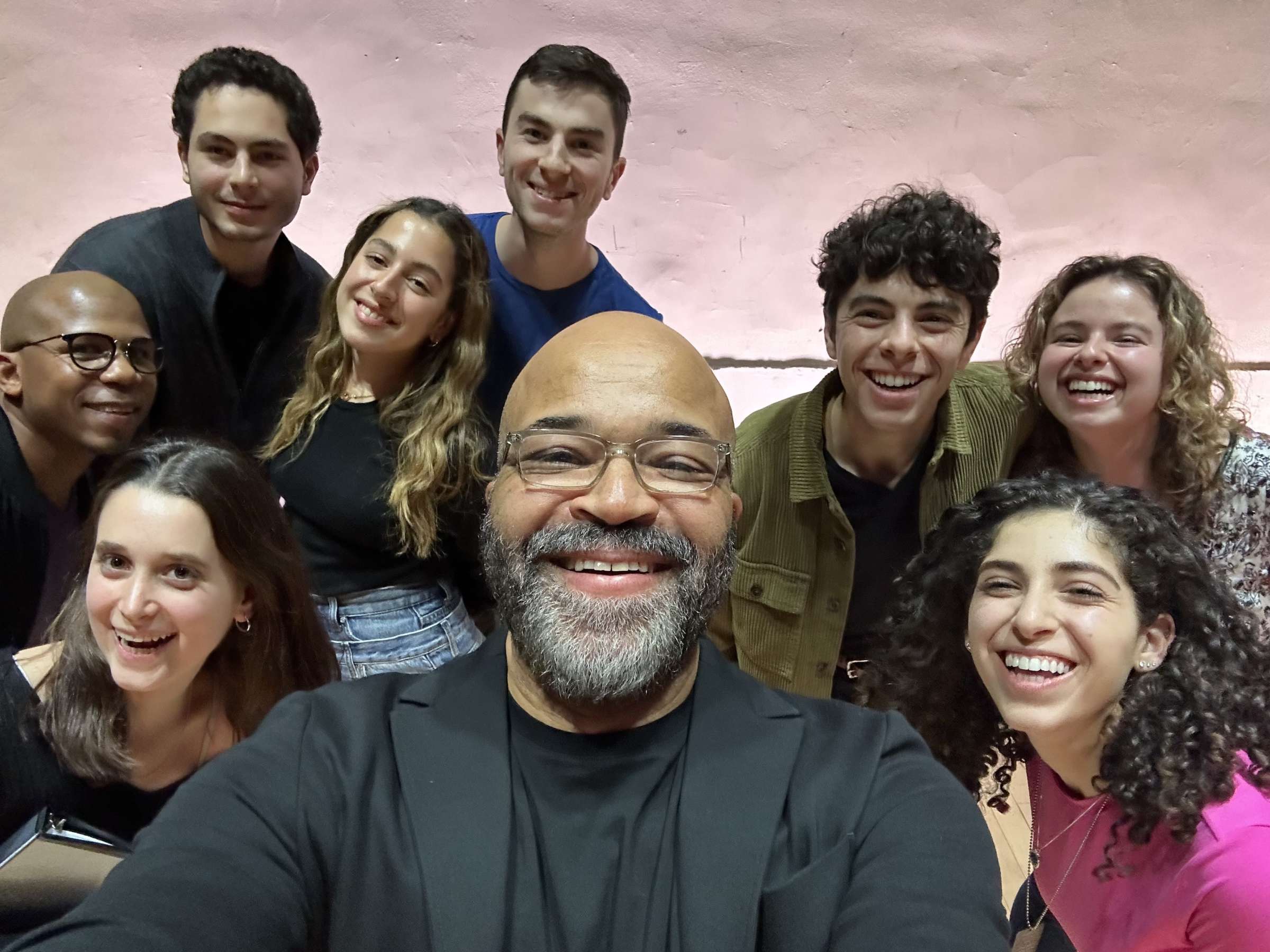
Theater of War: Hector, Andromache, and the Death of Astyanax
Dramatic Reading of Iliad, Book VI, by Homer The Trojan Women, by Euripides
Translated, directed, and facilitated Bryan Doerries
Theater of War: Hector, Andromache, and the Death of Astyanax will presents live, dramatic readings of selections from Homer’s Iliad, Book VI and scenes from The Trojan Women by Euripides—featuring acclaimed actors and a Chorus of students, from a variety of backgrounds, whose lives have been impacted by war—to help frame powerful, healing dialogue about the human cost of war, centered on the suffering of children and civilians. The project uses ancient texts that explore and depict the dehumanization of war to create a vocabulary for openly discussing challenging and divisive subjects, with the aim of generating compassion, empathy, moral repair, understanding, and positive action.
About the plays
-
Iliad, Book VI by Homer
The Trojan warrior Hector is confronted by his wife Andromache, who begs him not to return to the battlefield where she knows he will die. Hector explains the reasons he must leave her and their young son Astyanax to go back to battle and to his inevitable death. As he parts ways with his family, Hector reaches out to embrace his son, but Astyanax recoils in fear at the sight of his father’s helmet, which Hector removes before kissing and holding his son one last time.
-
The Trojan Women by Euripides
The selected scenes from Euripides’ Trojan Women take place at the end of the Trojan War, after Hector has been slain and Troy has been destroyed. Andromache and her son Astyanax are led through the ruins of the city on a wagon with Hector’s helmet and amour piled next to them. Andromache is being taken away by Achilles’ son Neoptolemus to live as his concubine and slave. The women of Troy, who have all lost their husbands in battle, mourn Andromache’s fate, as well as their own. Suddenly, a herald arrives and announces that the Greek army has decided to execute Astyanax by throwing him off the Trojan towers to prevent him from one day avenging his father’s death. Andromache says goodbye to her son before he is taken away and executed by Odysseus and she is taken from Troy on Neoptolemus’ ship. In the final scene, Astyanax’ body is brought to his grandmother Hecuba, the Queen of Troy, and the play ends with a funeral procession in which Astyanax is buried on his father’s shield while the remains of Troy are burned to ashes.
Theater of War: Hector, Andromache, and the Death of Astyanax Highlights
Lois Smith plays Hecuba
Villanova University / 2024
Lois Smith plays Hecuba and Chad Coleman plays Talthybius.
Chad Coleman plays Talthybius
Villanova University / 2024
Chad Coleman and Lois Smith with a chorus of Villanova students.

Nyasha Hatendi
Cal Poly Humboldt / 2024
Nyasha Hatendi played Hector in Homer's Iliad.
Cast and Chorus at Kenyon College
Kenyon College / 2024
This performance featured Debra Winger, Chad Coleman, Josh Hamilton, Marjolaine Goldsmith and a chorus of Kenyon students.
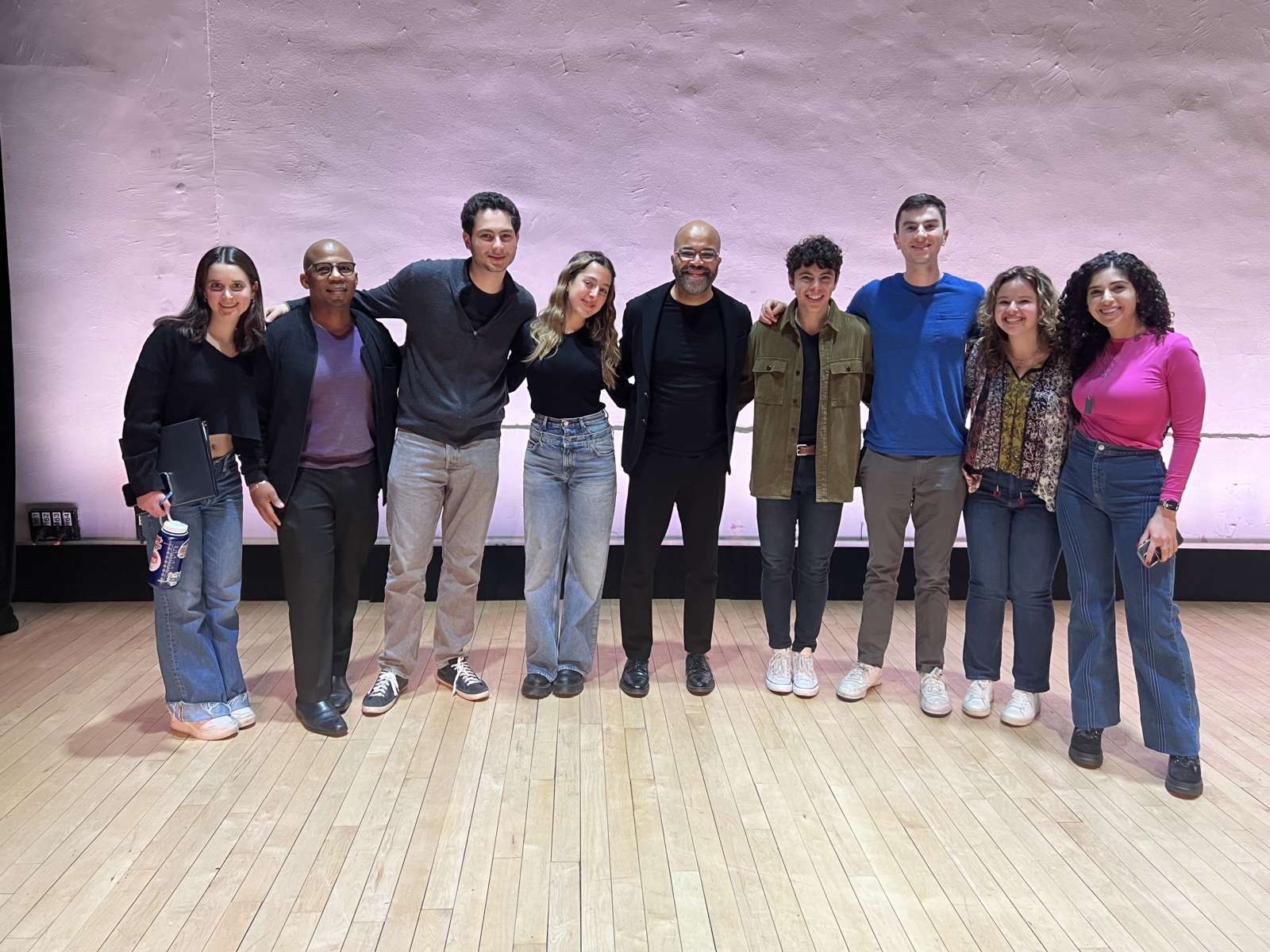
Jeffrey Wright and The Chorus
Miller Theatre, Columbia University New York City / 2024
Jeffrey Wright played Talthybius along side the courageous chorus of Palestinian, Israeli, Lebanese, Christian, Jewish, and Muslim Columbia University Students who came together to read the choral passages of Euripides' The Trojan Women and gave their candid insights to the play.
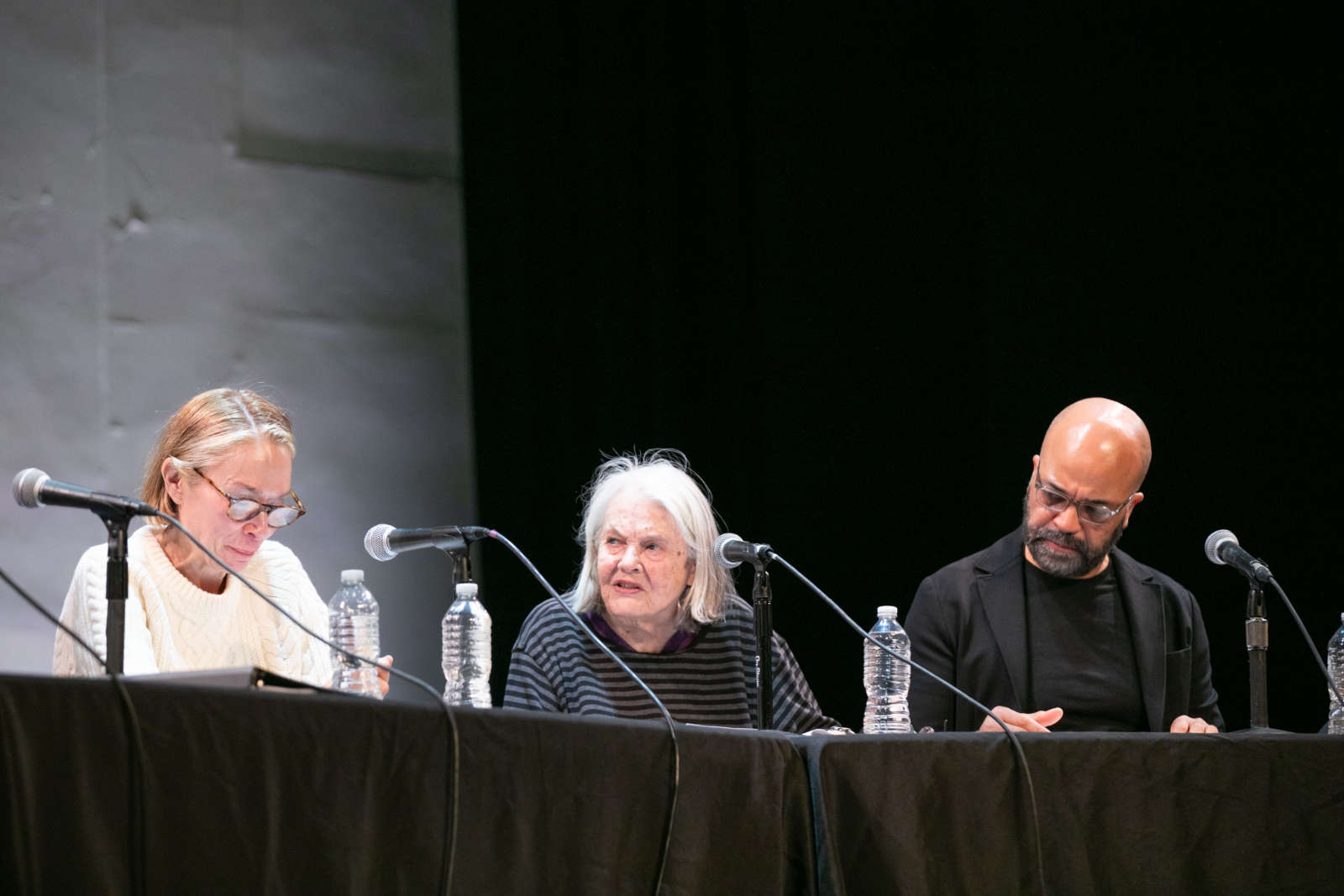
Elizabeth Marvel, Lois Smith, and Jeffrey Wright reading scenes from The Trojan Women by Euripides.
Columbia University, Miller Theatre / 2024
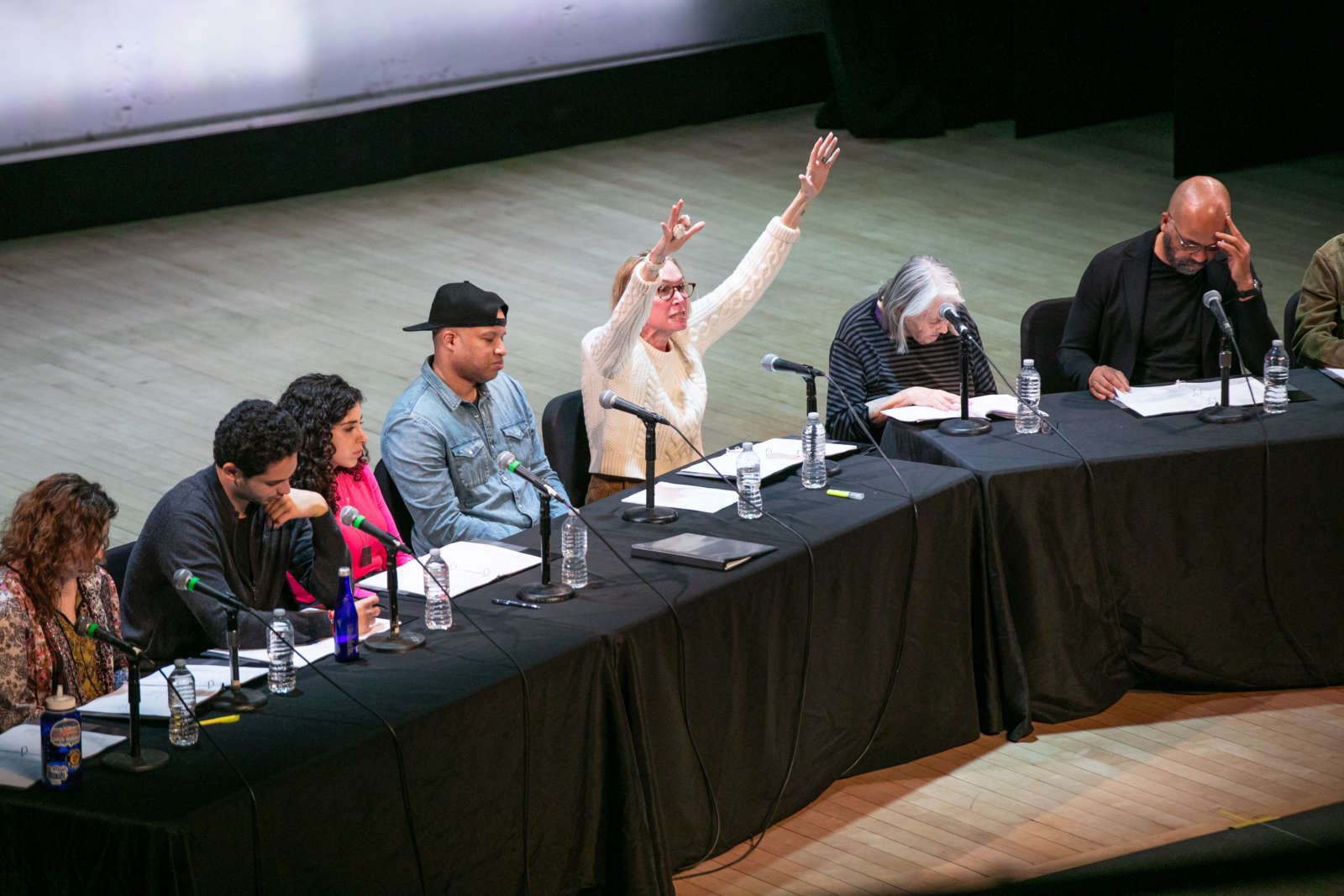
Elizabeth Marvel plays Andromache
Columbia University, Miller Theatre / 2024
Elizabeth Marvel plays Andromache alongside Glenn Davis, Lois Smith, Jeffrey Wright and a chorus of Columbia Students who's lives have been impacted by war.
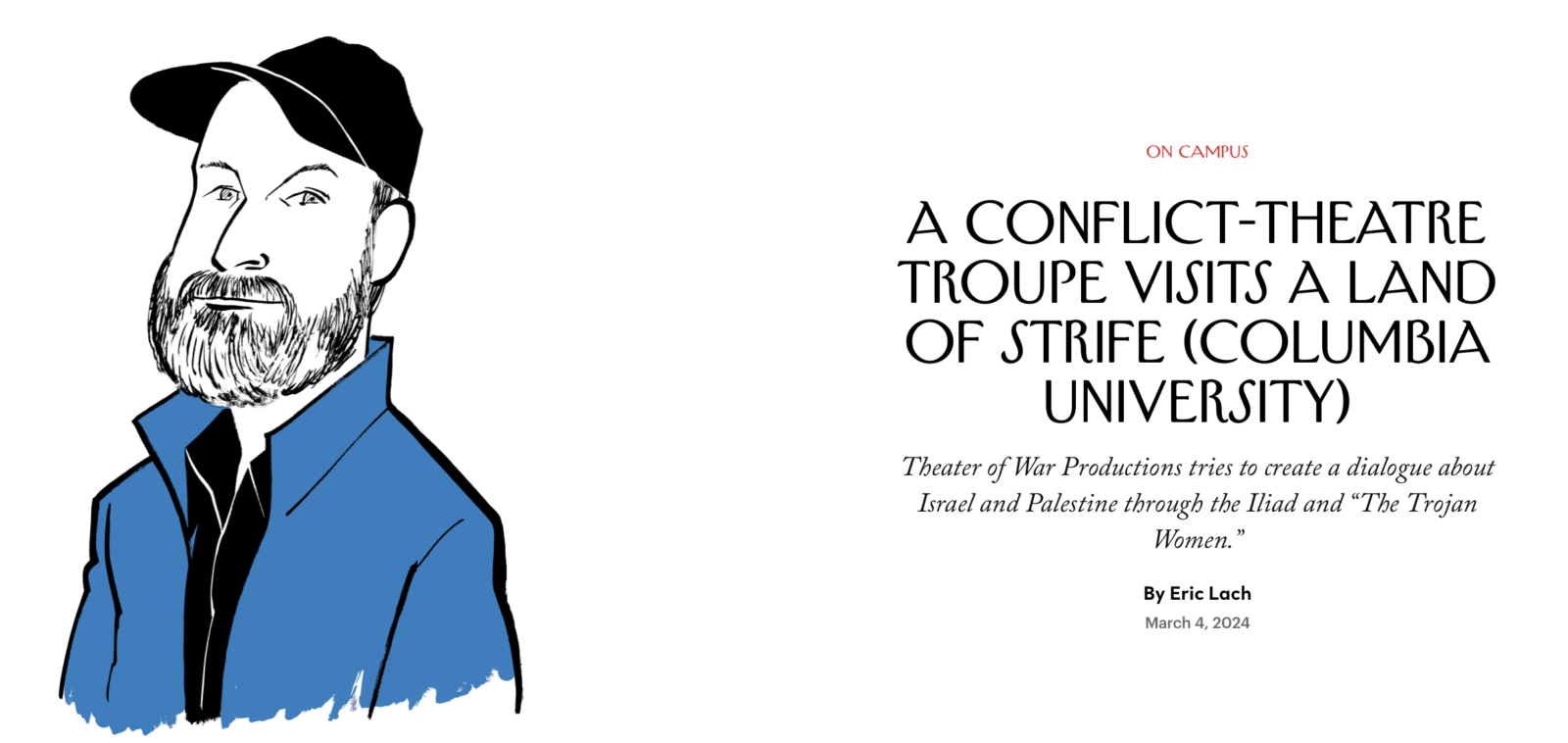
The Talk Of The Town
The New Yorker / 2024
A Conflict-Theatre Troupe Visits a Land of Strife (Columbia University)
Theater of War Productions tries to create a dialogue about Israel and Palestine through the Iliad and “The Trojan Women.” by Eric Lach
Explore Projects
-
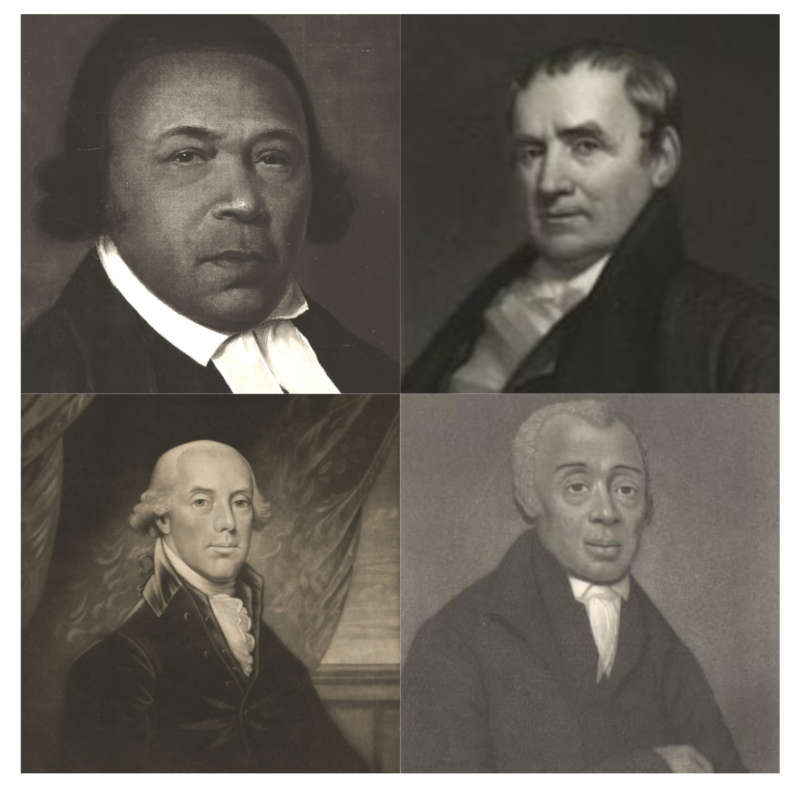 RacismA REFUTATION
RacismA REFUTATIONA REFUTATION presents dramatic readings by acclaimed actors of excerpts from two conflicting historic accounts of Philadelphia’s 1793 yellow fever epidemic as a catalyst for guided audience discussions about health inequities in America today, grounded in the perspectives of nurses, caregivers, and first responders.
-
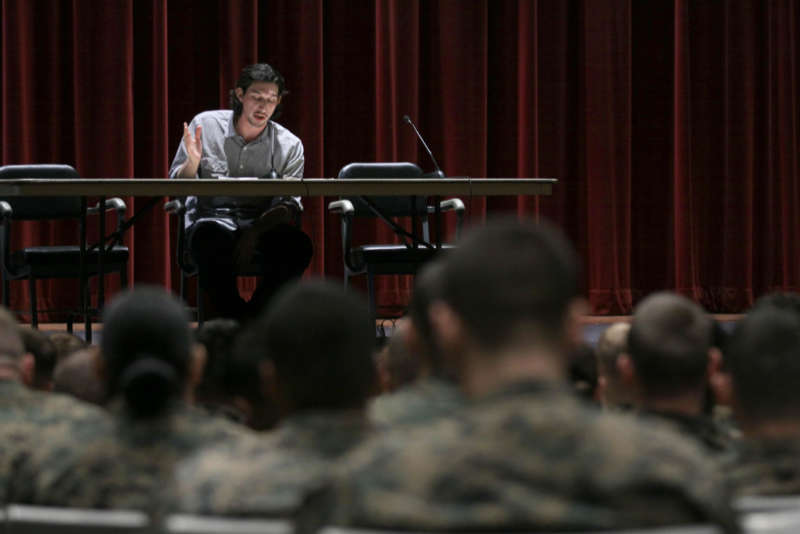 Addiction & Substance AbuseRum and Vodka
Addiction & Substance AbuseRum and VodkaThis project presents a one-man Irish play about a 24-year-old whose life is coming apart, due to drinking, in order to provoke discussions about alcoholism and addiction within diverse communities.
-
 Addiction & Substance AbuseAddiction Performance Project
Addiction & Substance AbuseAddiction Performance ProjectDesigned to raise awareness about opiate addiction and alcohol abuse, the project is intended to promote dialogue about helping those who are struggling with addiction.




